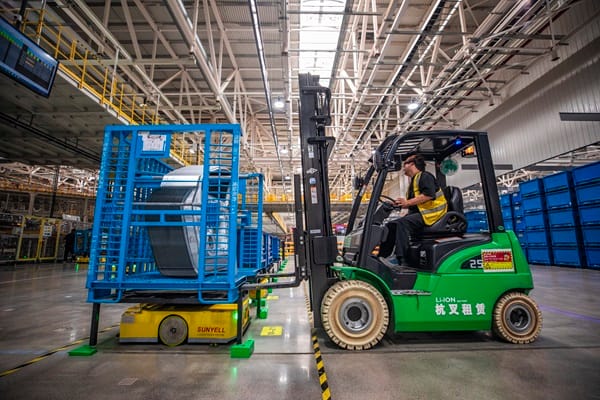Finding the right forklift training is necessary in the fast-paced environment of logistics to advance within your career. It has become known that the right certification not only helps confirm the safety compliance but also boosts efficiency of the entire operations. It also plays a more prominent role in reaching out to an endless line of job seekers looking for the right opportunities. As you contemplate on choosing the right training course that will fill your career goals, may this guide put you in the right direction.
Understanding forklift training and its importance
Forklift training involves operating a number of different types of forklifts, for example, counterbalance and reach trucks. Key topics covered in these courses include hazard awareness, vehicle specific fuelling requirements, equipment inspection, load handling and safety procedure. Now, for example there are courses offered by HGVC, a leading forklift training provider which covers both theoretical and practical elements and is delivered to health and safety executive guidelines.
Proper training is vital for several reasons:
- Safety Compliance: Ensures adherence to workplace safety standards, reducing the risk of accidents.
- Operational Efficiency: It increases manoeuvrability and load management skills, resulting in better productivity.
- Career Advancement: Logistics sector employers recognise a certification; it can boost employability.
Types of forklift training courses
Training programmes are generally categorised depending on the operator’s experience level:
- Beginner/Novice Courses: These are designed and curated for people, who have never taken courses, and are usually 3-5 days long. In classroom and hands on practical experience are part of them.
- Experienced/Skilled Operator Courses: This course is meant for the workforce who already have some experience but no formal certification to fine tune your skills. This certifies you are abiding by safe work practises.
- Refresher Courses: This is targeted to certified operators that are required to often periodically, update their knowledge and skills to keep valid the certification.
Things to consider when finding a training provider
- Accreditation: Make sure the training provider is accredited to recognised bodies e.g. RTITB, ITSAAR, ALLMI, NPORS or AITT. For example, accredited training programmes provided by HGVC follow industrial norms.
- Course Content: Hazard awareness, equipment inspection, load handling and reporting procedures are among the subjects that should form part of the curriculum.
- Methods of training: Deep learning which requires theoretical knowledge to be applied with corresponding practical experience.
- Flexible work positions & roles: Providers that offer on site and off-site training options to fit schedules and operational requirements.
How proper forklift training impacts your career
- Scope of Employability: Demand for Certified operators is high across industries including manufacturing and warehousing and distribution.
- Career Progression: With advanced training, supervisors or specialised training in operation of complex machinery is an option that helps one more up the ladder of employment.
- Increased Earning Potential: Operators who possess experience and are well-certified tend to earn a higher wage since the majority of them require approval of the operator.
Selecting the right forklift training course is the key to an exciting career in logistics. Choosing a programme with accredited, comprehensive and flexible training puts you as an asset in the industry. Enroll in a course that matches your desire for a career and is in accordance with industry standards.





![ChargePoint introduces two measures to battle EV charger theft and vandalization [Video] ChargePoint introduces two measures to battle EV charger theft and vandalization [Video]](https://i0.wp.com/electrek.co/wp-content/uploads/sites/3/2025/01/EV-charger-theft-cutter-ChargePoint.jpg?resize=1200%2C628&quality=82&strip=all&ssl=1)


